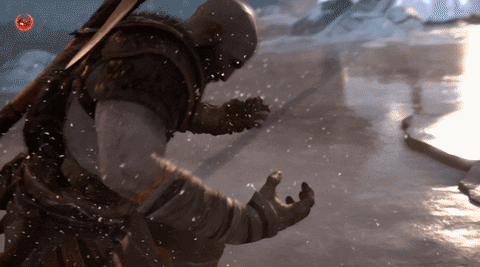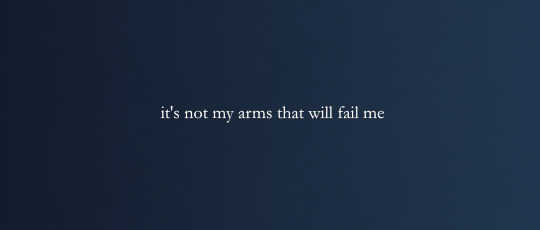Text
unreal unearth
i think i know why hozier hasn't released unreal unearth yet. the key lies in the name, methinks. so my conspiracy theory of the day is that he isn't going to release it at all.
so hear me out. he is indicating that we unearth that which is unreal. thus, we have been called upon, quite literally, to imagine up the album all by ourselves. hence the title, unreal unearth and the lack of the promised release.
#hozier#unreal unearth#conspiracy theory#ik why he hasnt released the album yet#he's calling for collective music-making#like goncharov but its a hozier album instead#on that note i have to go back to work byeeeee
12 notes
·
View notes
Text
“I’ve walked the earth and there are so few here that know How dark the night And just how cold the wind can blow I’ve no more hunger now to see where the road will go I’ve no more kept my warmth Than blood upon the snow”
— Hozier, “Blood upon the Snow”
88 notes
·
View notes
Text
Hozier and Bear McCreary - Blood Upon the Snow (from God of War Ragnarök)
youtube
IT'S HERE
HOZIER DID IT AGAIN

290 notes
·
View notes
Text


Hozier's newsletter <3
228 notes
·
View notes
Text


Hozier & Bear McCreary - Blood Upon the Snow
253 notes
·
View notes
Text
Hoziers “Swan Upon Leda” has me on my knees, in tears, whispering over and over “when nature unmakes the boundary/ the pillar of myth still stands” and I just
My heart hasn’t felt so many things in MONTHS
44 notes
·
View notes
Text
Don't mind me I'm just out here thinking about how Hozier managed to perfectly encapsulate the feeling of grieving a country in Swan Upon Leda. How it starts quiet, sad and heartwrenching, a chorus that crescnedos with beautiful music that overwhelms the vocals, its defiance seeming distant. The mantra-like repitition of the chorus at the end....
124 notes
·
View notes
Text
if you don't immediately understand hozier's lyrics that's fine, I always have to do my first few listens while staring at the lyrics and the sometimes do some research on the side, but basically the point is if you heard Swan Upon Leda and your first reaction was to post about the magical bog man leave. just genuinely see yourself out
300 notes
·
View notes
Text

damn that's a lot of gay people
133 notes
·
View notes
Text
Swan Upon Leda is such a beautiful and haunting song. it also has like four history lessons in there. Empire upon Jerusalem? Occupier upon ancient land?? So true king, say that
486 notes
·
View notes
Text
I just wanna talk about the importance of hozier putting the lines “a swan upon Leda // occupier upon ancient land” together. Like he’s literally saying “a man attempting to control a woman’s ability to reproduce/assault her is inherently colonization upon something sacred aka an unwelcome presence doing harm where it is specifically unwanted in such a way” and I am a mess over it
392 notes
·
View notes
Text
god this is stunning. the connections to greek and irish mythology, the commentary on the occupations of ireland and palestine, the conflict over jerusalem, women’s rights, sexual assault, gender…all encompassed in the most sorrowful, haunting song i’ve ever heard in my life. someone sedate me
585 notes
·
View notes
Text
There is some emotion invoked in me when I think about how in Swan Upon Leda the lead vocals are the lower harmony, sung in a calm whisper, while the backup vocals are also Hozier and he is screaming and it’s the upper harmony, but it sounds distanced and removed
And at that moment in the chorus, the instrumentation goes from gentle guitar and basic chords to weeping violins nearly overwhelming the vocals
Something about how society socializes afab people to not be loud or messy or ugly in their emoting and forces them to be calm, nurturing, and gentle while baring the weight of everyone else’s emotions in addition to their own
142 notes
·
View notes
Text
This is it for me are you kidding what did Hozier think he was pulling with this another song with Greek mythology and stunning lyrics about the plight of women? I am forever gone my mental illness is cured
1K notes
·
View notes
Text
Would never belong to angels
Have never belonged to men

2K notes
·
View notes
Text
Swan Upon Leda Analysis
Title - The title is a reference to Zeus raping the mortal woman Leda in the form of a swan, representing how the patriarchy both literally and metaphorically rapes women and denies them autonomy
A husband waits outside - This husband is two people simultaneously, just as Leda/the child is two people simultaneously. Mythologicaly, he’s supposed to represent the husband of Leda, the king of Sparta, who could do nothing to stop his wife from getting raped. As a human, the husband is supposed to represent the boyfriend/husband of the girl. (Let’s hope it’s a boyfriend but people can get married young in Ireland and maybe they got married to shield the girl from the shame of being an unwed mother. My cousin’s friend actually had to get married to her boyfriend at the age of fifteen for this exact reason, and because they live in a country where she could easily just straight up be denied healthcare for herself and the new baby if she was an unwed mother. ) This boy can do nothing to prevent his love from having to give birth to her rapist’s kid, and cannot protect her.
A crying child pushes a child into the night - This is obvious. She has to give birth despite being just a child, because she cannot get an abortion and her autonomy is denied her. She is crying to show how traumatic this experience is for her. No child should be forced to birth a child. She is also pushing the child into the night. Night often represents danger, oppression, bad times. She’s bringing the baby into life but she’s bringing him into a life of danger that is clouded by darkness, because the world is no place for a child these days.
She was told he would come this time - The girl/Leda knows she’s going to be raped by Zeus/the patriarchy/whoever raped her. This doesn’t make sense unless you look at it metaphorically. Rape is being used as a metaphor in this specific line for the denial of bodily autonomy. She knows that she has to give birth to a baby she doesn’t want, because abortion is illegal, and this is a denial of her autonomy, a symbolic rape. One which she is expecting and dreading.
Without leaving so much as a feather behind - Zeus did not leave any evidence of his rape of Leda. There’s no concrete evidence that what is happening to the girl is traumatic. No evidence that she got pregnant due to rape. No evidence that forcing her to give birth is also a form of rape. All that she has to convey her story with is her own words, which people might not believe. People often don’t believe the testament of women.
To enact at last the perfect plan - Zeus wants to impregnate Leda against her will. The patriarchy wants women to give birth against their will. This girl in the song is giving birth against her will.
One more sweet boy to be butchered by men - The new baby is an innocent boy. He does not have all the traits of toxic masculinity that would make society deem him as a man. But the patriarchy will destroy his innocence, his goodness, his sweetness, and make him into what they deem as a man. They will teach him to not allow himself to be emotional and empathetic and they will teach him the ways of violence and competition. Which will hurt him and others.
But the gateway to the world - This is the birth canal, that everyone has to pass through in order to get into the world, into life.
was still outside of reach to him - Zeus/the patriarchy/the rapist still does not have ownership over the reproduction of people who can get pregnant. Even though the patriarchy does so many things to gain control of these people and their reproduction. They can never own it.
Will never belong to angels - The power of reproduction and autonomy over it does not belong to religion.
Has never belonged to men - The power of reproduction and autonomy over it does not belong to men/the patriarchy. (Obviously this excludes men who have uteruses and therefore have control over their reproduction.)
The swan upon Leda - the patriarchy controlling peoples’ bodies and reproduction, which is rape both literally and metaphorically
Empire upon Jerusalem - This refers to both the ancient and the modern, and is emblematic of how so much of this song is about the parallels and the tying together of the ancient and the modern. The Roman Empire conquered Jerusalem (and the rest of ancient Isreal) in antiquity, and brought with it oppression and hardship and genocide, though it saw itself as a civilizing entity. In a direct parallel to the ancient Roman Empire, modern Israel is also occupying Jerusalem (and the rest of modern Palestine), and is bringing oppression and hardship and death with it, though it sees itself as a civilizing entity. The parallel of this line to the line before it shows that the control of peoples’ bodies by the patriarchy is a direct parallel to and interwoven with the control of native people by an empire.
A grandmother smuggling meds - This is a grandmother smuggling abortion medication into Ireland, where abortion was illegal until 2018. She’s smuggling it in from the UK where abortion has been legal for longer. She is doing this to help her granddaughter, and what she is doing is a brave act of motherhood and elderhood. It shows the intergenerational ties and solidarity between women, and the responsibility and compassion women feel for each other, as they are all a part of the same story that spans back into ancient times.
Past where the god child-soldier Setanta - This is literally a statue in the border between Britain and Ireland, but symbolically means so much more in addition to this. Setanta was a god/demigod in the Celtic religion, who was made to do the adult’s job of guarding a lord’s house at the tender age of seven. From this job, he got the nickname Cu Chulainn. Hozier uses Setanta’s given name and not the more famous name he got from doing child labour as a mark of respect for the humanity of this child. He was a god both literally and also metaphorically since he represents Irish Nationalism and the longing for Ireland to be a sovereign nation. He is a symbol to Irish Nationalism. He’s referred to as a child soldier here because after the age of seventeen he had to nearly singlehandedly fight off an invading army and in some versions of the story he died in that war. His having to go to war at such a young age, his being a child soldier, it parallels the girl from the first verse becoming a child mother. They both lost their innocence too early. But Setanta had to protect his homeland from the invading army. This shows that imperialism and patriarchy are parallels to each other in that they both rob children of their childhoods. Setanta is a symbol also for all the brave people, many of them teenagers, who fought and died for Irish independence.
stood dead - The symbol of Irish Independence is dead in this world where Ireland does not allow pregnant people control over their own bodies. Ireland might technically be free from British colonization but it will never be free unless the women and trans men and nonbinary people and intersex people are free from the patriarchy’s colonization. Because of the lack of bodily autonomy that marginalized genders have over their bodies, the dreams of Irish revolutionaries to have autonomy over their own lands is dead.
Our graceful turner of heads - Society and the patriarchy have taught us that women lose their grace and their beauty as they age but in truth, this old grandmother doing an important job is so mystically graceful.
Next part in the reblogs (½)
389 notes
·
View notes
Text
Yeah ngl at this point it literally feels like my man Hozier needs to release a prerequisite reading list for every song he writes.
5K notes
·
View notes